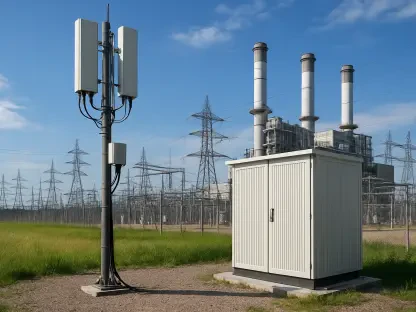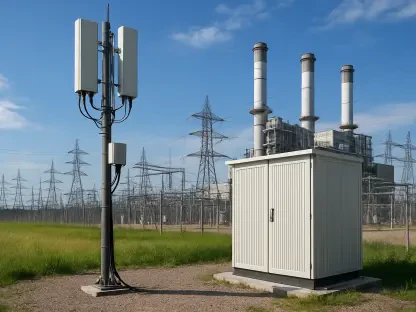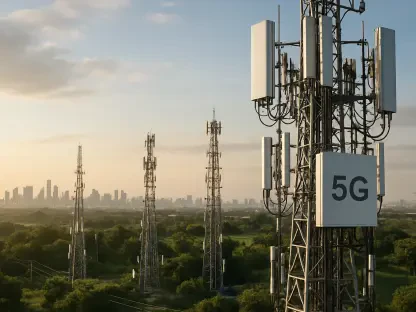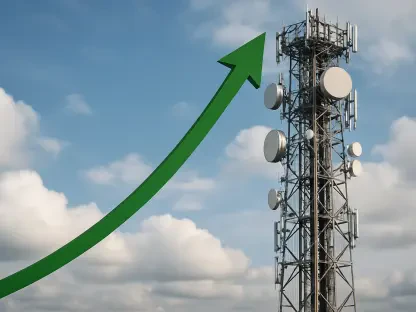Issa Asad, the CEO of Q Link Wireless, orchestrated an elaborate fraud scheme that siphoned over $100 million from federal programs designed to support low-income and pandemic-affected communities. A federal raid in 2021 on the company’s offices exposed the breadth of deceptive activities, leading to a thorough investigation and, ultimately, Asad’s guilty plea. The case underscores the vulnerabilities in federal aid programs and highlights the severe repercussions for those who exploit them, offering a cautionary tale about integrity in executive operations.
The Federal Inquiry Begins
The investigation into Issa Asad and Q Link Wireless gained momentum in 2021 when federal agents executed a raid on the company’s offices. This marked the beginning of an exhaustive inquiry into allegations of fraud affecting both the Lifeline program and the Paycheck Protection Program (PPP). These programs aim to provide essential services and pandemic relief to vulnerable populations. The initial raid set the stage for a deeper delve into the company’s operations and the deceitful tactics employed.
As agents meticulously combed through documents and digital records, they unearthed extensive evidence of systematic fraud. For nearly a decade, Asad had orchestrated the submission of falsified claims and manipulated customer data to secure improper reimbursements from federal agencies. This initial discovery painted a damning picture of a long-term, premeditated effort to exploit federal relief programs. The federal inquiry soon expanded, revealing how customer interactions were manipulated to fabricate user activity, thus securing undeserved funds.
Exploiting the Lifeline Program
The core of Asad’s fraudulent activities was centered on the Federal Communications Commission (FCC)’s Lifeline program, which subsidizes phone services for low-income consumers. Q Link Wireless systematically reported false customer activity to secure continued funding, inflating user numbers through dishonest means. This manipulation directly hampered the program’s ability to serve legitimately needy individuals.
As part of the fraudulent scheme, Asad employed coercive measures, requiring customers to engage in fabricated interactions. One specific tactic involved automated phone calls that misleadingly tied Lifeline service continuance to the preservation of other government benefits, such as Medicaid and food stamps. This deceitful strategy not only misled consumers but also artificially boosted service activity metrics. Through these manipulative methods, Q Link managed to collect millions in undeserved reimbursements, severely compromising the Lifeline program’s integrity.
Deceptive Tactics and Cover-Ups
As scrutiny of Q Link Wireless’s activities heightened, Asad and his team took extensive steps to cover their tracks. They submitted fraudulent documents to federal agencies, aiming to obscure discrepancies and justify inflated claims. The cover-up efforts included creating bogus customer records and falsifying engagement data, all to present misleadingly robust service activity.
Despite these efforts to conceal their fraudulent activities, investigative bodies continued to peel back layers of deception. The discovery of such extensive cover-up tactics not only prolonged the fraudulent scheme but also revealed the premeditated nature of Asad’s crimes. This discovery demonstrated a clear, deliberate intent to defraud federal programs systematically. It also underscored the importance of diligent oversight and the vulnerabilities within federal assistance frameworks that can be exploited through cunning and deceit.
Misuse of COVID-19 Relief Funds
Beyond the Lifeline program, Asad’s fraudulent activities extended to defrauding the Paycheck Protection Program (PPP), which was set up to support businesses during the COVID-19 crisis. He secured substantial PPP funds under false pretenses, thereby diverting crucial financial resources meant for struggling businesses to personal use.
Instead of utilizing the loans to sustain business operations and support employees, Asad misappropriated the funds for personal projects. These included the construction of a new home and the purchase of luxury goods. This blatant misuse of pandemic relief funds exacerbated the financial strain on legitimate businesses that were desperately in need of support during the public health crisis. The siphoning of PPP funds for personal gain during a global emergency highlighted the depths of Asad’s unethical conduct, further intensifying public and legal condemnation.
Legal Ramifications and Financial Penalties
Issa Asad’s guilty plea encompassed multiple serious charges, including wire fraud, conspiracy to defraud the United States, and money laundering. The severity of these offenses brought about substantial legal repercussions, both in financial terms and broader legal implications. The legal proceedings concluded that Asad must bear considerable restitution payments.
As part of the legal resolution, Asad agreed to pay $109.6 million in restitution to the FCC and over $1.7 million to the Small Business Administration (SBA). Additionally, he faces personal forfeiture of approximately $17.5 million of illicit gains. These financial penalties reflect the gravity of the fraud and the broader effort to reclaim misappropriated funds, ensuring they are redirected to their rightful purpose. The substantial sums involved underline the high stakes of such fraudulent activities and the significant consequences for individuals found to be exploiting federal programs.
Government Response and Future Implications
The case serves as a stark reminder of the vulnerabilities inherent in federal aid programs and the severe consequences for those who exploit these systems for personal gain. It underscores the importance of integrity and transparency in executive roles, particularly when dealing with funds meant to support the most vulnerable populations. This cautionary tale also highlights the need for stricter oversight and enforcement mechanisms to prevent similar fraudulent activities in the future. The repercussions for Asad and Q Link Wireless extend beyond legal penalties; they damage the company’s reputation and erode public trust in federal assistance programs.
In essence, Asad’s actions not only siphoned critical resources away from those in desperate need but also spotlighted the ongoing challenges in safeguarding public funds. The fallout from this case offers important lessons for both policymakers and business leaders on the necessity of maintaining ethical standards and robust oversight in the management of public resources.









